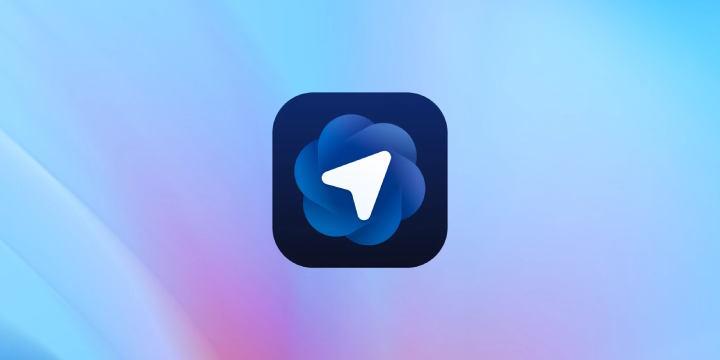Back in 2008, Google launched the Chrome browser to help better integrate its industry-leading search engine into the web-browsing experience. Today, OpenAI announced the Atlas browser that it hopes will do something similar for its ChatGPT large language model, answering the question “What if I could chat with a browser?” as the OpenAI team put it.
OpenAI Founder and CEO Sam Altman said in a live stream announcement that Atlas will let users “chat with a page,” helping ChatGPT become a core way that users interact with the place where “a ton of work and life happens” online. “The way that we hope people will use the Internet in the future… is that the chat experience and a web browser can be a great analogue,” he said.
The new browser is available for download now on macOS, and Altman promised Windows and mobile versions would be rolled out “as quick as we can.”
An LLM that follows you
The home screen of a new Atlas tab mirrors the simplicity of the Chrome search box, with a text field prompting users to “Ask ChatGPT or type a URL.” Users can access their chat history or different ChatGPT models using an interface similar to that on ChatGPT.com. The Atlas browser will also populate suggestions below that search box, which could range from links to news stories to suggestions for tasks the browser can perform for you.
During the livestream, the OpenAI team said that Atlas has features that web users have come to expect from a browser: tabs, bookmarks, and auto-fill among them. But the integration with ChatGPT now means that “chat comes with you everywhere” in the browsing experience.
That means you can use ChatGPT to search through your bookmarks or browsing history using human-parsable language prompts. It also means you can bring up a “side chat” next to your current page and ask questions that rely on the context of that specific page. And if you want to edit a Gmail draft using ChatGPT, you can now do that directly in the draft window, without the need to copy and paste between a ChatGPT window and an editor.
When typing in a short search prompt, Atlas will, by default, reply as an LLM, with written answers with embedded links to sourcing where appropriate (à la OpenAI’s existing search function). But the browser will also provide tabs with more traditional lists of links, images, videos, or news like those you would get from a search engine without LLM features.
Let us do the browsing
To wrap up the livestreamed demonstration, the OpenAI team showed off Atlas’ Agent Mode. While the “preview mode” feature is only available to ChatGPT Plus and Pro subscribers, research lead Will Ellsworth said he hoped it would eventually help users toward “an amazing tool for vibe life-ing” in the same way that LLM coding tools have become tools for “vibe coding.”
To that end, the team showed the browser taking planning tasks written in a Google Docs table and moving them over to the task management software Linear over the course of a few minutes. Agent Mode was also shown taking the ingredients list from a recipe webpage and adding them directly to the user’s Instacart in a different tab (though the demo Agent stopped before checkout to get approval from the user).
Atlas users can watch Agent Mode as it clicks through various tabs and webpages, taking over at any time, or they can let it operate in the background without oversight. Users can activate Agent Mode directly using a drop-down menu, but ChatGPT can also suggest it be turned on when a user prompt suggests a task that it might be able to help with.
The OpenAI team said Agent Mode can click around as if it were a human user, with full access to that user’s authentication and browsing history. But the Agent Mode can only operate inside web tabs and can’t execute code outside of the browser, OpenAI said. You can also manually control whether a new Atlas tab is “logged in” or “logged out” of various other web services, and use incognito windows for browsing you don’t want the LLM to remember.
A crowded field
Established competitors in the browser space have been trying to integrate similar AI features into their products for a while now: Microsoft with a version of Copilot built into the Edge browser and Google with Chrome-based Gemini features that it promises will include “Agentic features” in the coming months. A number of startups are also focused on building AI-powered browsers from the ground up, most notably Perplexity, which recently made a bold $34.5 billion bid for Chrome despite a total market valuation of just $14 million.
OpenAI also notably publicly expressed interest in buying Chrome back in April, though recent legal updates in that antitrust case mean Google now seems unlikely to sell in the near future.
The Information reported on OpenAI’s browser plans last year, and Reuters followed up with more information from unnamed sources in July. Reuters noted that a browser will give OpenAI more direct access to valuable user data beyond what gets typed into a ChatGPT prompt window and could provide a simple way to integrate ads into the ChatGPT experience. But of course, that all depends on how many of ChatGPT’s 700 million-plus weekly active users are willing to abandon their current browser in favor of a less proven competitor from a major LLM brand.

 Are orange iPhones turning pink? Man shares how his brand new phone’s color has changed in just two weeks
Are orange iPhones turning pink? Man shares how his brand new phone’s color has changed in just two weeks